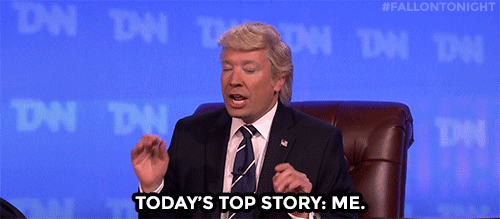- The Mind, Explored.
- Posts
- How to Minimise Ego while Maximising Self-Esteem
How to Minimise Ego while Maximising Self-Esteem
Feel great without needing to feel better than anyone else.

What is an ego?
Our ego isn’t inherently bad. It’s our sense of self - our sense of ‘I’.
It’s the lens through which we see ourselves in relation to the world around us.
The word ‘ego’ originates from the Latin word for ‘I’, reflecting the role it plays in giving us a sense of personal identity - who we understand ourselves to be.
Freud likened the ego to a human riding a horse, where the horse represents our primitive desires, fears, and urges.

A healthy ego is able to control its primitive instincts, while an unhealthy ego is pulled by its instincts, often into trouble.
Why do we need an ego?
Our ego tells us who we are, helps us make decisions that align with our sense of identity, and balances our urges with our sense of what is right and wrong.
But I thought ego was a bad thing?
We often think of an ‘ego’ as an ‘inflated ego,’ associating it with arrogance, self-importance, and narcissism. As Ryan Holiday explains in his book, ‘Ego is the Enemy’, an inflated ego distorts our perception of the world so that we see ourselves as central figures and see everyone else as either inferior or competitors.

However, an unhealthy ego can also manifest as a deflated ego, leading to people excessively seeking approval, fearing failure in case it reveals how flawed we truly are, and making us feel low self-esteem.
In this way, ego and self-esteem often rise and fall together. Those with high ego tend to feel high self-esteem, and those with low ego tend to feel low self-esteem.
What is self-esteem?
In his book, 'The Six Pillars of Self-Esteem', Nathaniel Branden defines self-esteem as a combination of capability and worthiness.
Capability: Trust in our ability to learn, adapt, and overcome.
Worthiness: Belief that we deserve happiness and respect because we’re inherently valuable.
Family therapist Terry Real explains the role this inherent value plays in the face of failure:
“Self-esteem is your ability to see yourself as a flawed individual and still hold yourself in high regard.”
What’s the difference between ego and self-esteem?
While an unhealthy ego relies on external validation, self-esteem is a stable inner strength that doesn't depend on outside opinions or achievements.
Although a boost to the ego can boost self-esteem, self-esteem can thrive without an inflated ego.
How can we escape the pitfalls of the ego while benefiting from high self-esteem?
First, we must understand what our ego is trying to achieve.
In ‘A New Earth’, Eckhart Tolle explains that an inflated ego drives us to seek fulfilment by owning things and feeling superior to others. He writes passionately about how our egos have led to the destruction of the planet and harm to our species through consumerism, warfare, and more.
How could we possibly be driven to behave so directly against our best interests?
Tolle believes it’s because our ego has an underlying fear of never being enough. And, to counter that fear, our ego drives us to accumulate and identify with material possessions, self-promoting thoughts, and emotions that confirm that the way we think is the right way to think.
The ego then compares these materials, thoughts, and emotions to other people’s, judging us to be either better or worse, enabling us to feel superior.
An inflated ego makes humans not just want to be good - it makes us want to be better than others.
After all, this gives us even more confidence that we are worth something. The less secure we feel about our self-worth, the more we rely on these materials, thoughts, and emotions to construct an image of the self.

How can we develop a healthier ego?
1) Let Your Lows Transform You:
When we experience failure, it tells us a truth. An inflated ego is obsessed with maintaining a superior identity and tries to protect this identity by denying these truths. A healthy ego helps us accept these truths so that we can learn, grow, and prevent them from happening again.
In his book, ‘Creativity, Inc’, Ed Catmull explains that failure isn’t inherently bad - it’s a consequence of innovative work. We should therefore expect it (and even desire it) because it’s a sign that we are trying something new and creative. This is as true for creative projects as it is with failures in our careers or relationships.
If a heartbeat represents a sign of life, failure represents a sign of progress.
2) Manage External Validation:
Receiving praise, compliments, or awards can be motivating - but it can tie your self-esteem to others’ opinions. It should complement, not replace, your internal validation - being truly proud of yourself regardless of anything outside of you.
The Roman philosopher-emperor Marcus Aurelius had a servant to follow him around with one simple job: any time someone praised or bowed down to him, the servant would whisper in his ear: “You’re just a man.” Marcus Aurelius knew the disease of an inflated ego, and needed this system to keep his in check.

How can we maximise our self-esteem without inflating our ego?
Our self-esteem both influences and is influenced by our behaviour, creating a continuous cycle. This means we can nurture our self-esteem by starting with positive behaviours, as outlined by Branden’s Six Pillars of Self-Esteem:
Living with Awareness: Look for the truth about reality so you can accept it and improve it. For example, if you don’t check your bank account to see how much you’re spending, you can’t adjust your budget as needed. You’d be choosing to live in ignorance rather than awareness, and continue to overspend.
Accept Yourself: If we don’t accept all our thoughts, feelings, and behaviours, we won’t try to change them. In his book ‘Nonviolent Communication’, psychologist Marshall Rosenberg recommends asking yourself, “What unmet need prompted me to act that way?”
Take Responsibility: In ‘The Subtle Art of Not Giving a F*ck’, Mark Manson argues that taking responsibility will make you happier because you’ll feel empowered even in the worst situations. This shifts your focus from “What happened to me?” to “What can I do?”
Assert Yourself: Expressing what we need in appropriate ways helps us value ourselves by asserting that our needs matter. For example, if you're feeling unsure about your responsibilities at work, you might say to your manager, "I want to make sure I'm contributing effectively. Can we review my responsibilities to make sure I'm on the right track?"
Live Intentionally: Decide who you want to be and create a deliberate system to fulfil that identity. James Clear, in ‘Atomic Habits’, explains that the most powerful types of habits are identity-driven. Instead of planning to meditate every morning (outcome-based), you would be better off first deciding ‘I am someone who meditates’ (identity-based), and then create systems to support that identity.
Act with Integrity: When we act without integrity to our values, we lose respect for ourselves. Start by clarifying your values - this article offers a 7-step guide to discovering them.
Balancing ego and self-esteem is not about rejecting one in favour of the other - it’s about nurturing a healthy sense of both to feel great without needing to feel better than anyone else.
Self-Reflection:
When has your ego been unhealthy lately? Think of moments where you felt defensive, superior, or looked for validation.
How have you nurtured your self-esteem recently? Think of instances where you recognised your worth independently of any external opinions or outcomes.
By nurturing a healthy ego and building self-esteem, we can live life authentically - free from the need for external validation and grounded in true self-worth. That is something we all deserve.
Written by Dr Manu Sidhu 🩺
What rating would you give this article?Your feedback helps me give you higher quality content 🤝 |
Hit ‘reply’ to write back with any thoughts, questions, or more detailed feedback.
If this article resonated with you, the best way for you to support is by sharing it with others who may be interested.
If this article has been forwarded to you, someone who knows you well believes you may be interested in mind-related content.
To receive emails with articles like this, subscribe here.
Disclaimer:
The Mind, Explored. is for informational purposes only and does not constitute the practice of professional health care services, including the giving of medical advice, and no doctor/patient relationship is formed. The use of information in this newsletter or materials linked from this newsletter is at the user’s own risk. The content of this newsletter is not intended to be a substitute for professional medical advice, diagnosis, or treatment. Users should not disregard or delay in obtaining medical advice for any medical condition they may have and should seek the assistance of health care professionals for any such conditions.

Reply